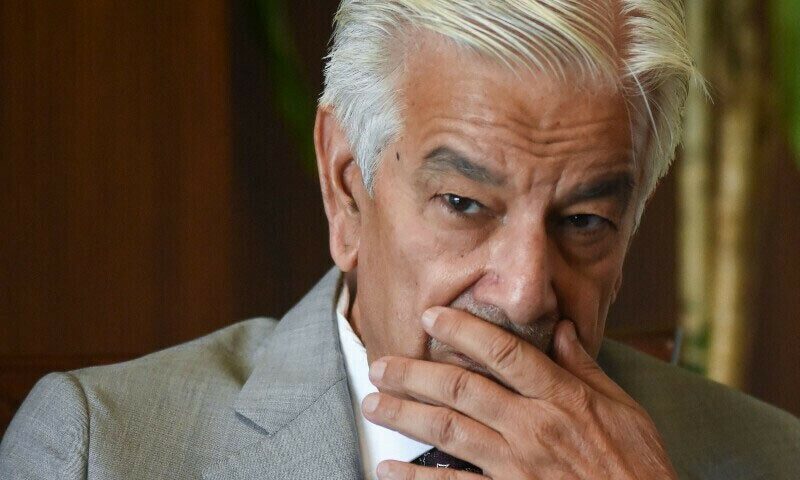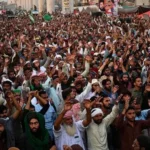BLA and TTP Are Indian Proxies, Says Khawaja Asif
Defence Minister Khawaja Muhammad Asif has directly accused India of supporting terrorist organizations responsible for attacks within Pakistan, particularly in the volatile Balochistan region. Speaking during a televised appearance on Geo News, Asif named the banned Baloch Liberation Army (BLA) and Tehrik-i-Taliban Pakistan (TTP) as “Indian proxies.” He asserted that the government would soon provide “complete and irrefutable evidence” linking India to the Khuzdar school bus bombing, which left three children dead and dozens more injured.
The tragic attack occurred near Zero Point in Khuzdar as a school bus en route to Army Public School was targeted with a bomb. Over 40 individuals, primarily students, were wounded, with many suffering critical injuries. The Pakistani military and government officials, including Prime Minister Shehbaz Sharif and Chief of Army Staff Gen. Asim Munir, visited the victims and pledged that the perpetrators would be relentlessly hunted down.
Asif emphasized that the BLA’s leadership is known to operate from India, adding: “They’re not fighting for religion or nationalism — they’re funded and fueled by New Delhi.” Drawing a contrast, he criticized India for blaming Pakistan for the Pahalgam attack in Kashmir without evidence, while Pakistan has chosen to gather and present solid proof of Indian complicity.
ISPR and Pakistan’s Strong Response
The military’s media wing, Inter-Services Public Relations (ISPR), echoed the minister’s remarks, branding India’s use of terrorist proxies as a “state tool” against Pakistan. The ISPR highlighted the failure of India’s strategy against Pakistan’s Operation Bunyanum Marsoos, adding that the “heinous face of India will be exposed globally.” The ISPR reported that 12 terrorists from these proxy groups had been eliminated in separate operations in Khyber Pakhtunkhwa and Balochistan just days before.
Lt Gen Ahmed Sharif Chaudhry, the ISPR Director General, had earlier revealed that Indian-trained assets were being activated to intensify attacks in Pakistan. He showcased the arrest of a terror suspect trained in India as further evidence of direct state-sponsored terrorism.
Khawaja Asif further warned against escalating nuclear tensions in the region, stating, “We will not initiate nuclear war, but we cannot remain silent if attacked.” He underscored Pakistan’s past restraint, despite provocations including airstrikes on Pakistani soil.
China, Afghanistan Support Pakistan’s Anti-Terror Stance
In a related diplomatic move, Foreign Minister Ishaq Dar reported that Pakistan, China, and Afghanistan reached a trilateral agreement ensuring none of their territories would be used for cross-border terrorism. Speaking in Islamabad, Dar affirmed Pakistan’s firm stance: “We will not tolerate terrorism, nor allow our soil to be used for it.”
Dar added that China expressed strong support for Pakistan’s sovereignty and called for the peaceful resolution of the Kashmir dispute, reinforcing Islamabad’s position on the root cause of regional instability.
In another tit-for-tat move, both Pakistan and India declared diplomats from the opposite country persona non grata, accusing them of activities inconsistent with their diplomatic status.








